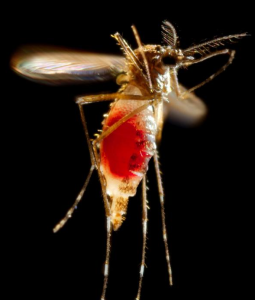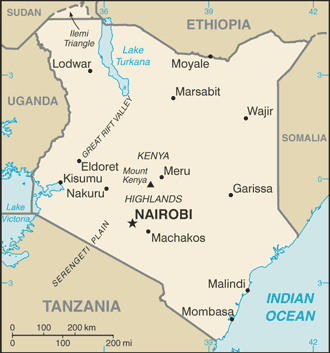By NewsDesk @infectiousdiseasenews
In a follow-up on the dengue fever outbreak in Kenya, 553 cases have been reported within the past 4 months of January, February, March and April, with a peak of cases being reported in April in two counties on Kenya’s east coast.

According to the county department of health in Mombasa, the first Dengue cases were reported in early March 2021 with 24 cases testing positive out of 47 (51% positivity rate). In April, another 305 cases tested positive out of 315 (97% positivity rate). The adjacent Lamu county, has also reported a total of 224 positive cases from different health facilities where 59 are children under 5 years old.
No deaths have been reported so far within the two counties.
Health officials in Mombasa County have warned over the Dengue fever outbreak and directed all their health officials in sub-counties to initiate “targeted preventive and control measures”.
Public health officials are warning that more cases should be expected as the seasonal ‘long rains’ run through to the end of May, boosting mosquito populations. The scenario is that if this spread of Dengue is not addressed urgently, it will spread into adjacent counties.
The trend is hardly a reflection of the true situation in the counties since people who suffer the milder form of the disease are not seeking medical attention.

The Kenya Meteorological Department also predicts normal to above rainfall along the coastal counties of Kenya for the long rains of April-June and this will increase the vector population and in turn a surge in new cases. There is also concern about a new variant of Dengue fever.
Dengue is a viral infection that causes a wide spectrum of diseases, from subclinical disease (where the person may not have symptoms) to the development of hemorrhagic fever.
Female mosquitoes mainly of the Aedes aegypti spread the disease, for which there are four subtypes. These mosquitoes are also vectors of Chikungunya, Yellow fever and Zika viruses. Dengue is widespread throughout the tropics, with local variations in risk influenced by rainfall, temperature, relative humidity, and unplanned rapid urbanization.
Dengue causes a wide spectrum of signs and symptoms. According to WHO, these can range from subclinical disease (people may not know they are even infected) to severe flu-like symptoms in those infected. Although less common, some people develop severe Dengue, which can be any number of complications associated with severe bleeding, organ impairment and/or plasma leakage. Severe Dengue has a higher risk of death when not managed appropriately.
- Malaysia officials respond to ivermectin ‘miracle drug’ claims
- Hispaniola: Diphtheria cases rise to 23 confirmed
- Paraguay: Dengue cases on the rise
- Plague suspected in the death of squirrels in the Colorado Springs area
- CDC study: COVID-19 mRNA vaccines 94% effective in health workers
- FDA releases report to shed light on 2020 salmonella outbreak linked to red onions
- Philippines Agriculture Dept. backs proclamation of state of calamity due to ASF outbreak


One thought on “Kenya: Dengue outbreak tops 500 cases in eastern counties”